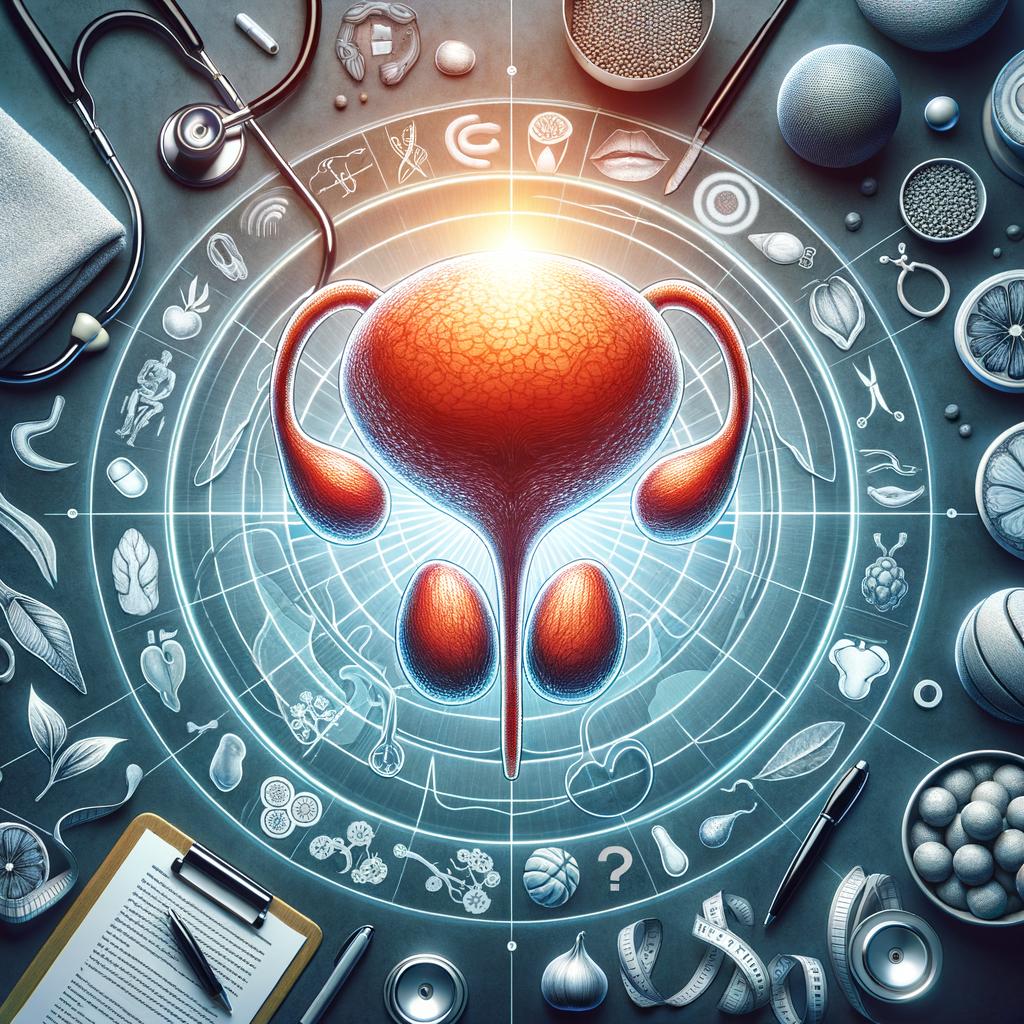
Introduction
What are symptoms of prostate cancer? This serious health issue primarily affects men, and knowing the warning signs can be lifesaving. The simplest answer is that symptoms can range from frequent urination to difficulty beginning and controlling urination, along with painful or burning sensations during urination or ejaculation. However, since prostate cancer often shows no symptoms in its early stages, regular screenings and checks are important even in the absence of signs. As we dive into the vast ocean of understanding prostate cancer, we will explore in detail the variety of symptoms, potential causes, and preventative measures related to this disease.
First signs of Prostate Cancer
When the alarm bells of prostate cancer start ringing, they can indeed be challenging to hear. Early prostate cancer usually causes no symptoms. Unfortunately, it behaves like an unwanted guest that hides silently in the shadows, lying beneath the radar, causing no trouble until it decides to rear its ugly head.
However, regular check-ups and screenings can catch it in its sneaky game, hence the importance of routine visits to the doctor once a man crosses 50. In some men, symptoms might start appearing early. Frequent need to urinate, particularly at night, a sensation of not fully emptying the bladder and blood in the urine or semen are some key early indicators.
Advanced Prostate Cancer Symtoms
As prostate cancer advances, it shifts gears and manifests a set of more identifiable symptoms. Difficulty in initiating and controlling urination, decreased force in the stream of urine, discomfort in the pelvic area, and bone pain become red alerts pointing towards prostate cancer’s progressive phase.
Persisting pain or stiffness in the lower back, hips or thighs can also herald the arrival of advanced prostate cancer. Again, these symptoms don’t mean you’ve drawn the short straw and are destined to have cancer; they are merely signs that you should consult with a healthcare provider.
Prostate Cancer Pain
When gales morph into hurricanes, prostate cancer that has significantly progressed often lingers from the prostate to the bones, triggering intense pain. When the cha-cha of cancer starts in the pelvic region and performs a quickstep to the bones, it can induce excruciating pain, particularly in the hips, spine, and ribs.
It’s not all doom and gloom though – pain doesn’t always signify advanced prostate cancer. It could be due to other health conditions or general wear and tear. If you are person experiencing frequent and severe pain, it’s time to speak to your healthcare provider.
Urinary Problems and Prostate Cancer
In the opera of our bodies, if the prostate starts singing out of tune, causing urinary problems, it could be a sign of prostate cancer. Prostate cancer can push the urethra, hamper bladder control and mess with your melody, causing issues like burning or pain during urination and more frequent urges to urinate at night.
While these signs can also be attributed to benign prostate problems, it is always important to rule out prostate cancer with the help of your healthcare provider.
Conclusion
Remember, suspecting you may have prostate cancer can feel like you’re caught between a rock and a hard place. But it’s crucial not to let the fear of the unknown keep you from visiting your healthcare provider. Pay attention to your body, be mindful of the changes, and keep open communication with your doctor.
Frequently Asked Questions
1. What is prostate cancer?
Prostate cancer is a type of cancer that occurs in the prostate, a small gland that produces the seminal fluid that nurtures and transports sperm in men.
2. Can prostate cancer occur in young men?
Although it’s rare, prostate cancer can occur in younger men. However, it is more common in men over 50.
3. What are preventative measures for prostate cancer?
Maintaining a healthy diet, staying physically active, avoiding smoking, and regular screenings can play an important role in preventing prostate cancer.
4. Does prostate cancer always show symptoms?
Not always. Early stages of prostate cancer might not show any clear symptoms at all, which is why regular screenings are crucial as men age.
5. Can prostate cancer be treated?
Yes, prostate cancer can be treated, and many men with this diagnosis live for many years. Options include watchful waiting, surgery, radiation, hormone therapy, chemotherapy and more.


